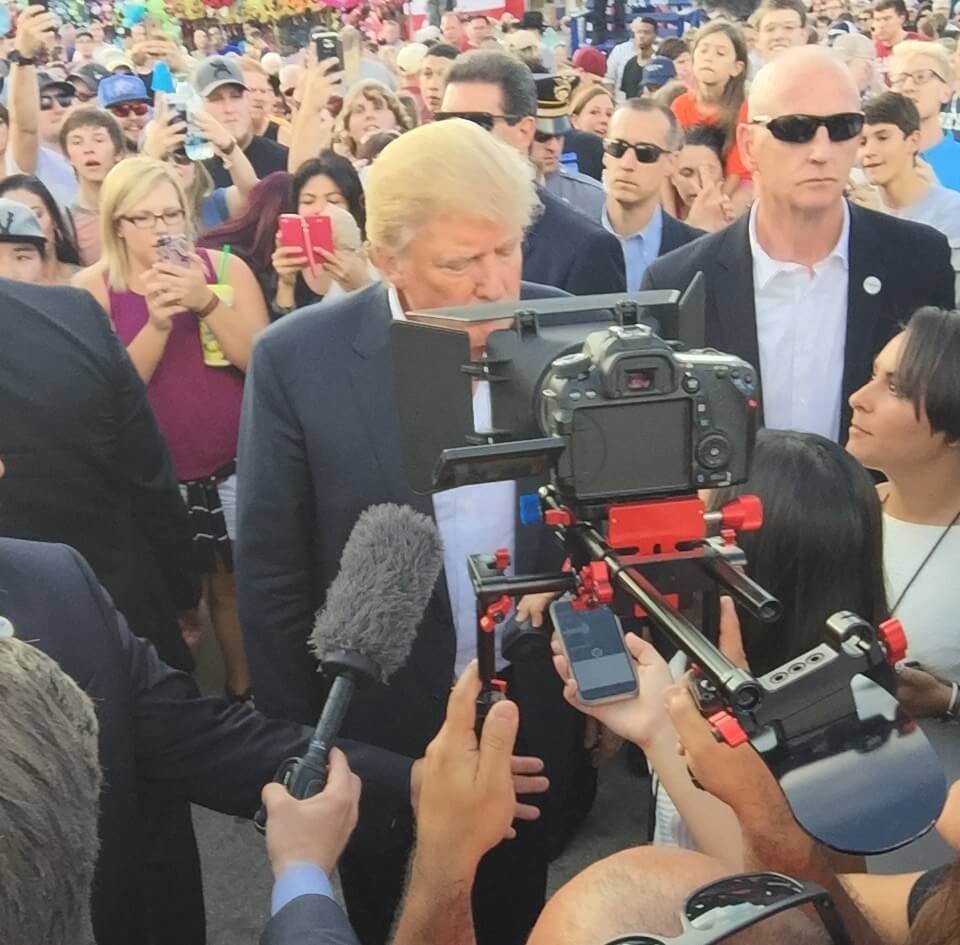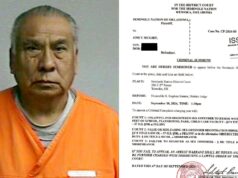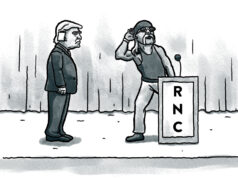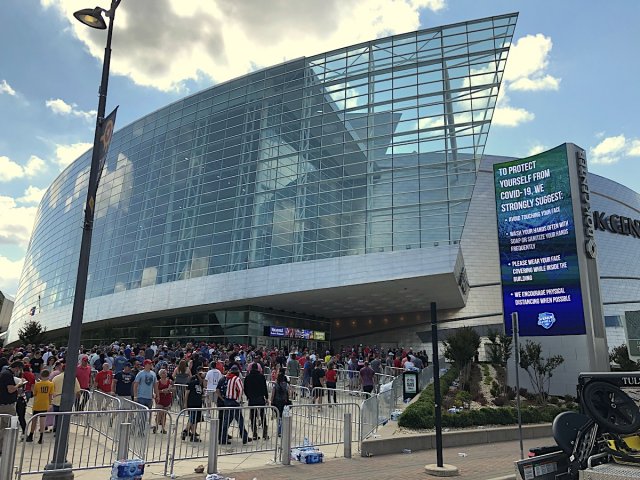

TULSA — As I sipped a crowd-funded cocktail in the Tulsa Press Club around 11 p.m. Saturday, a longtime friend noted how thrilled he was that President Donald Trump’s much-ballyhooed campaign rally had come and gone without igniting chaotic clashes between opposing groups on city streets.
“This whole thing has been a cringefest, and Tulsa just threaded the needle,” he said.
Online, Tulsans were also celebrating a peaceful end to what many feared could have been a violent collision between two sides of a split America.
Like many media members, I had been dreading the potential storm since Trump’s team announced Tulsa would be the host city for his first campaign event in three months.
Physically and mentally exhausted from covering the COVID-19 pandemic, the protests about policing and the upcoming June 30 primary elections, I dutifully drove from Oklahoma City to Tulsa on Saturday with another of our journalists, Archiebald Browne, as the bloodshot eyes of a distraught nation focused on the Oil Capital of the World.
‘Proud capitalists. That’s what we are’
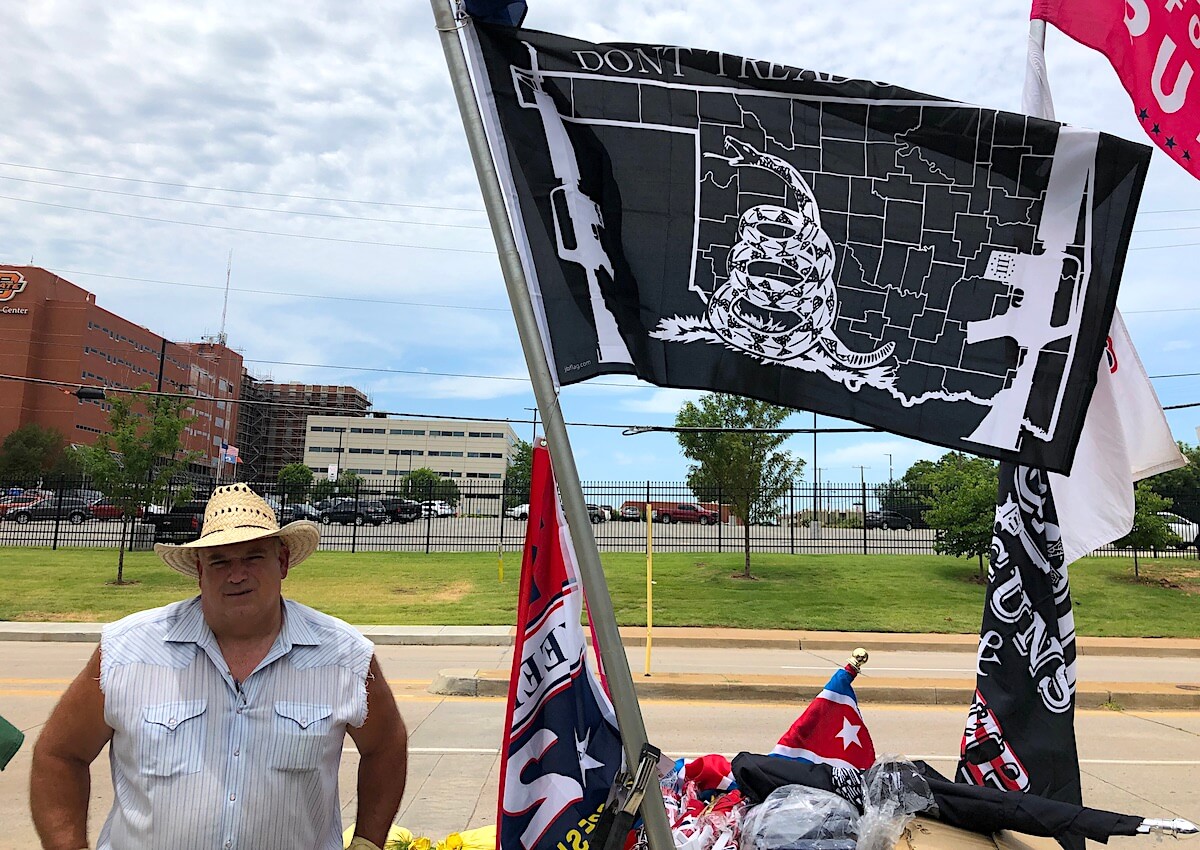
As we entered Tulsa, Archie and I were both tired and worried about what might unfold. Our plan was to scope out the scene before splitting up briefly — I and my cowboy hat heading into a throng of Trump fans; Archie and his beanie making a beeline for the Greenwood District — and meeting back in our room to watch the president’s speech on TV. (Archie’s piece can be found here.)
But as we pulled into our hotel parking lot, we encountered a man pushing a shopping cart full of “flags to offend everyone equally.”
“We do LBGTQ, we do Black pride, pink pride. Wherever we think there’s an opportunity, we’re all about trying to be there,” said Jeff Brown of Portland, Oregon. “We’re capitalists, though. Proud capitalists. That’s what we are.”
With help from his son, Brown runs JBFlag.com, which features hundreds of options for order. Brown’s “Rebel / Dixie” category features more than 90 confederate flag variations, and his “Pride / Rainbow” category offers more than 70 designs. If you can think of a message, there’s a decent chance Brown sells it on a flag.
“The economy is shit — that’s the real problem. It ain’t COVID, it’s not Black Lives Matter. It’s the economy,” Brown said when asked about the current political climate. “But they don’t want to be honest with us, so they’re playing lots of games with it. That’s my opinion, and you know I’m right.”
Did I? Over the past few years, I have learned a great deal about the trials and tribulations of running a small business. Trying to navigate the bureaucracy of the Oklahoma Employment Security Commission, the Oklahoma Secretary of State’s Office and the Oklahoma Tax Commission had helped me understand the pro-business talking points of the Republican Party, so I wondered if a similar experience had shaped the politics of a man who sells $20 and $40 flags for a living.
“You know what, I’m not going to vote this year. But I’m a Trump supporter, and I voted before,” Brown said. “I have realized what the all-caps name on your ID is and my ID is. I’m not down with it anymore. I’m not a corporate. There’s blood in me. You break my DNA down, I got it all in there. I’m just a regular American.”
Credentials, schmedentials
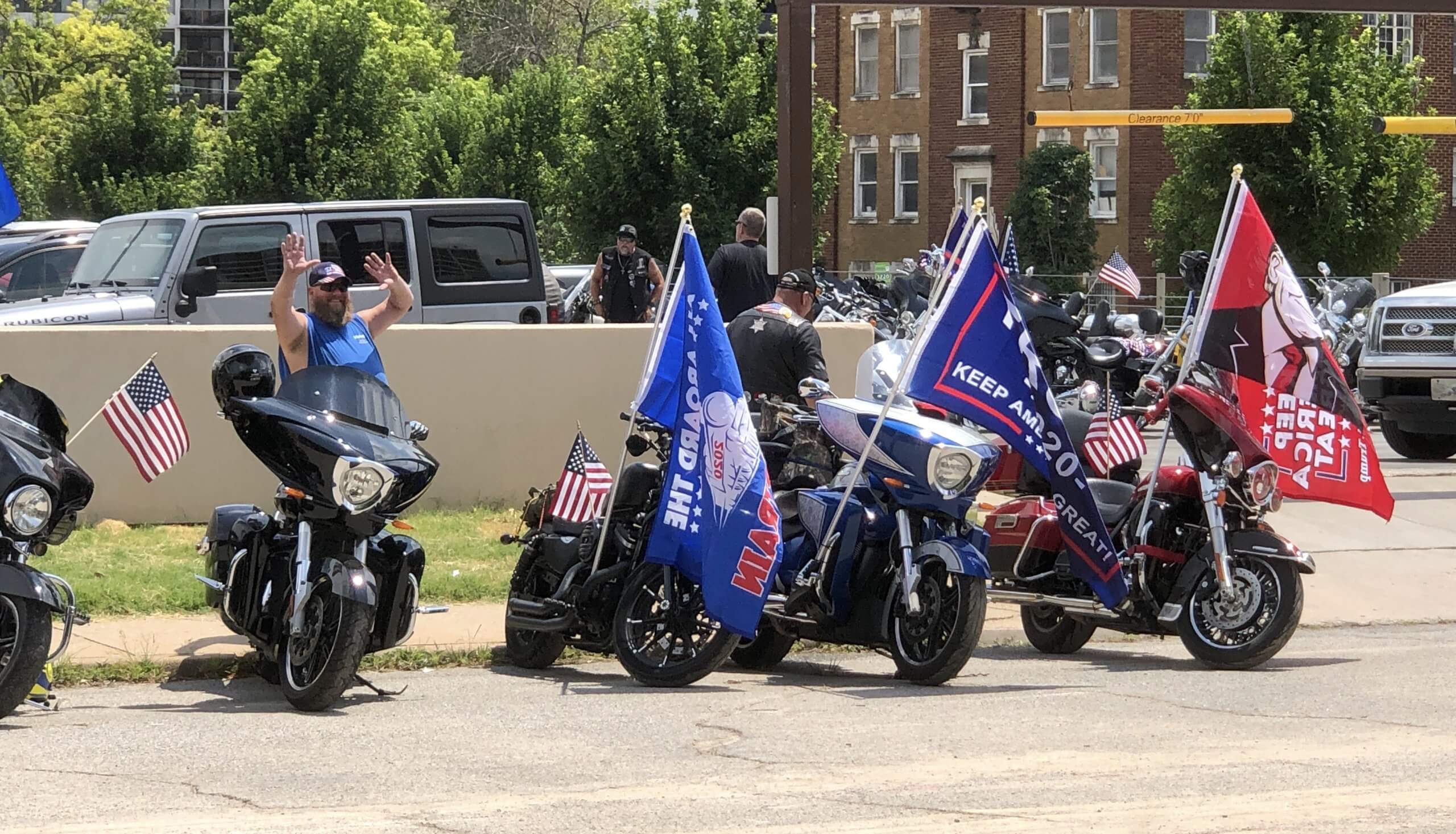
If Donald Trump wins his 2020 re-election bid, finding and interviewing “regular Americans” like Jeff Brown will come back into vogue for journalists across the country and around the globe. After Trump shocked pollsters and pundits by winning the electoral college in 2016, someone coined the phrase “Bubba Safari” to sarcastically describe the renewed reporting efforts of national publications that had missed the Trump movement’s momentum and were left scrambling to tell stories of people who had re-engaged at polling places owing to The Donald’s tell-it-like-it-is style and his America-First promises of economic prosperity.
I witnessed this disconnect between the political media establishment and a mass of Americans during Trump’s 2015 rally at the Oklahoma State Fair. Journalists I spoke with either mocked his message as obviously flawed or outright nonexistent, and not even the day’s enormous and engaged crowd convinced us that Trump stood a shot at winning the Republican Party nomination, much less the presidency.
Saturday, I set off from the downtown Tulsa Best Western wearing virtually the same outfit I had worn four years ago, determined to check the oil of Trump’s machine, which is either humming along for a raucous re-election or sputtering to a dismal defeat, depending upon which political prognosticator you read any given Sunday. My intention was not to argue politics or policy with anyone, but rather to ask questions and report to the world what ardent Trump fans believe.
I had just one problem: The Trump campaign had denied NonDoc’s request for official media credentials.
“Really?” asked one of a dozen state lawmakers I ran into. “That’s strange.”
Another later tweeted that she was “amazed” I couldn’t get inside the Campaign Zone with my backpack and laptop as a member of the working press. A statewide elected official even made phone calls on my behalf, trying to snag a spare VIP wristband for me.
After a couple of trips back and forth between event gates, I dropped my bag at our hotel and entered the rally unmolested with pen and paper.
‘My mother can be rougher than Trump’
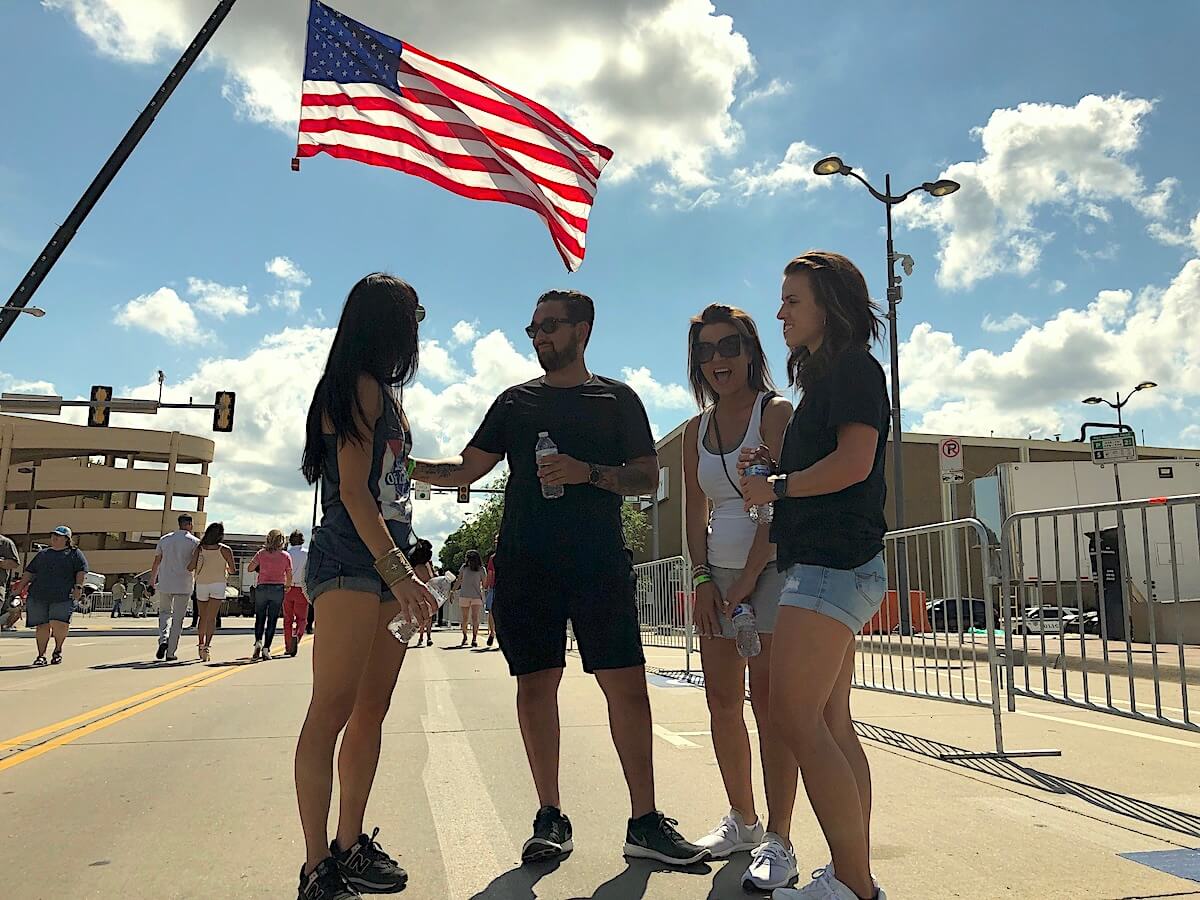
Inside the Trump campaign’s Fun Zone — my term, not theirs — I was equally fascinated with the scene at hand and the people I met. By that point, a woman named Sheila Buck who was wearing an “I Can’t Breathe” shirt had already been awkwardly arrested for sitting in the closed street, despite having a ticket for the event, which suddenly seemed destined not to fill the 19,000-seat BOK Center. But crowd size only seemed to matter to media members, the Trump campaign and those overjoyed by the underwhelming outpouring.
To the 6,200 or so Trump fans who had shown up — many from states around the country — Saturday’s soiree was a thrill. While I spoke with fellow Oklahoma media who talked and tweeted of an area a couple blocks away where politics were colliding with raised voices and even a couple shoves, almost all the Trump fans I met inside the eerily-gated pop-up community seemed happy.
“I love him and support him,” said Tulsa-area resident Suzie Barnett. I asked what she likes about Trump. “Honesty. Not a politician. Even if you don’t like him, he tells you what he thinks. I’d rather have honesty than the rhetoric.”
Barnett was in attendance with her two daughters and her soon-to-be son-in-law.
“One thing I can say about Trump is he is always pro-America,” said Elizabeth Barnett, an OSU alumnae. “You can say what you want about him, but he loves America, and he wants to make America first. That is always his priority.”
In terms of policy, Suzie Barnett said she would like to see Trump address issues in the pharmaceutical industry, take environmental action and do something in the agriculture sector “like get rid of the big GMOs like Monsanto.”
“I consider myself more libertarian,” she said. “I just want the least amount of government invasion that I can have.”
To that end, Suzie Barnett said she hopes Trump does not require a COVID-19 vaccine once one is developed. Asked if anything the president does — such as his outrageous Twitter account and his penchant for name-calling — makes her cringe, Suzie Barnett said no.
“I’m from Boston. I don’t cringe at anything,” she said. “My mother can be rougher than Trump.”
Not every member of the Barnett family is fully aboard the Trump train, however. Jacqui Barnett, Suzie’s other daughter, said she won’t be voting to re-elect the president, even though she does enjoy how he trolls his opponents.
“I would vote for somebody who is a little more anti-war. I think he has done OK on it,” Jacqui Barnett said. “He hasn’t gotten us into any more wars, but underneath him printing money is going up like crazy. I think he’s exaggerating how great the economy is under him, and I know people are paying a lot of attention to all that.”
‘Don’t let the media silence you’
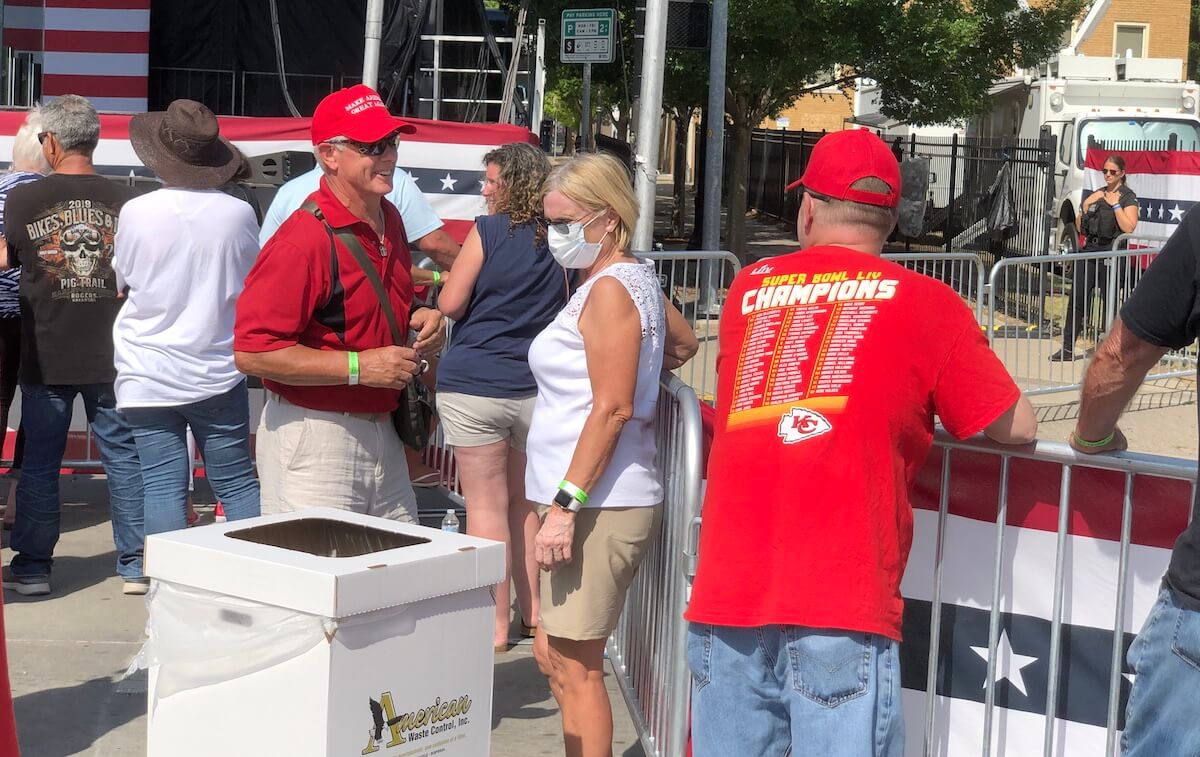
Up the street, Michigan resident Gerald Helder was standing near the pre-event stage where senior Trump advisors had just completed a live episode of The Right View. During the show, political operative Mercedes Schlapp encouraged the crowd to make their voices heard in society.
“You all, don’t let the media silence you,” Schlapp said. “You’ve got to continue to speak up and not let them shut you down.”
Moments later, Helder agreed to my interview request.
“It’s pretty bleak,” Helder said of the economy. “We need the jobs coming back, and if we have him back in (office) we stand a chance of having some better manufacturing.”
Helder agreed that some Michigan voters who supported Trump for his economic promises in 2016 might blame him for a sagging economy in 2020 as an incumbent. But during his speech later in the evening, Trump said exactly what Helder wanted to hear.
“We have so many plants coming in to Michigan and so many other states. We have car plants coming in that would have never come if I wasn’t president,” Trump said. “We will become the world’s premier pharmacy drug store and medical manufacturer. That’s already started. We’re bringing it back.”
On the street prior to Trump’s speech, Helder said that if he could ask the president to focus on a particular policy area, it would be education.
“We are leaving our children behind. They say our children are our future,” Helder said. “No matter what walk of life you’re in, you need to have an education. I feel the anger in this country is all because of baiting — baiting on politics, on your race, whatever they can find to bait you on and get you in.”
Helder said Trump has faced constant criticism since taking office, which is something that bothers him and others.
“All the money wasted on going after him could have been used on other things. I just hope he gets in. I’m so tired of seeing the hate that is in America now,” Helder said. “There are so many people out there who just hate him. We are all in this together. There is no reason to be hating on somebody.”
Trump: Media are ‘bad people’
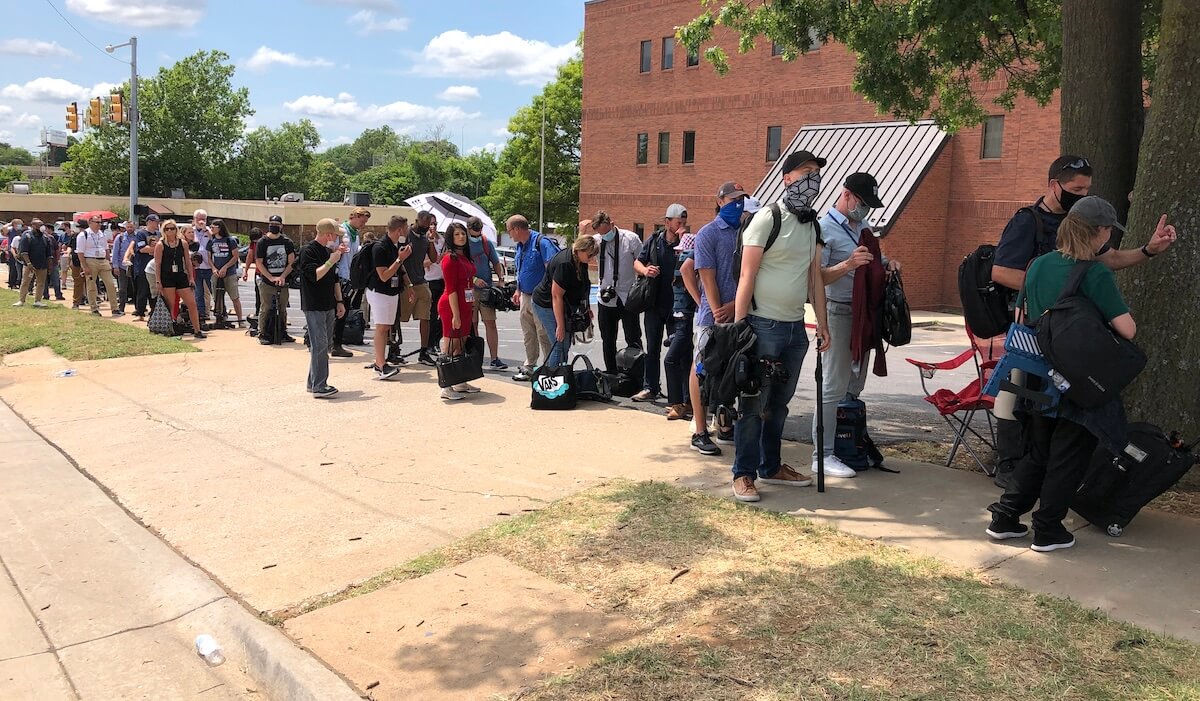
Of course, Donald Trump chugs his fair share of Haterade, bestowing pejorative nicknames on other politicians and inflaming racial tensions with insensitive remarks. Excitingly, I am a member of one of the groups Trump loves to hate most: journalists. It’s a schtick that helped propel the wealthy businessman into office four years ago, and he has turned a sinking public trust of “the media” into strong skepticism of all reporting about the president.
During his 100-minute speech Saturday night, Trump devoted a significant chunk of time to rehashing his recent walk down a ramp that spurred speculation — and even attack ads — that he is unwell. Combined with footage of Trump using two hands to drink water, the ramp saga raged across 24/7 cable news networks, and the president’s continued discussion of the topic has spurred even more articles.
FROM 2015
Donald Trump called me a ‘terrible’ person by Tres Savage
“They are among the most dishonest people anywhere on Earth,” Trump said of journalists Saturday. “They are bad people.”
Hours earlier, Jacqui Barnett did not seem to think I was a bad person, but she did offer an example of what frustrates the public about media.
“Earlier we were here, and there was one guy with a — it looked like he drew in pencil ‘KKK rally’ pointing to the BOK, and right behind him were five people holding, ‘Black Lives Matter’ and ‘Free Health Care’ (signs). Just very peaceful,” Jacqui Barnett said. “But the whole media, they were tight in on [the guy with the KKK sign]. I’m like, ‘If you zoomed out just a tiny bit, there were people behind him being very peaceful and not disturbing anyone with signs about being anti-racist.”
As a journalist myself, I have tried to consider Donald Trump’s running feud with the media from a variety of angles. The most frightening is that normalizing a loathing of media can put reporters in real danger, or at least on edge. On the other hand, I personally re-entered the world of journalism largely owing to my own frustrations about the ethics and depth of local reportage, and anyone who knows me knows I have despised 24/7 cable news since the days when Jon Stewart killed Crossfire.
But the untold components of Trump’s media mania are two-fold. First, an industry with otherwise miserable prospects for staying financially afloat has found one bright spot in recent years: growing grassroots support for publications viewed as accurate and essential to a local news ecosystem. Even as a pandemic has upended the economy and further damaged corporate publishing conglomerates, it has (thankfully) become popular to donate or subscribe to media outlets. And from a purely commercial standpoint, the Trump Circus rolling its tents into town is always a financial boon for many journalists, be they freelancers hired for the weekend, salaried reporters clocking record overtime or independent publications receiving unsolicited contributions of support. Even the Tulsa Press Club had a terrific Saturday, parlaying a “buy your local journalist a drink” donation link tweet into a solid financial month and a couple skunk-drunk correspondents.
Second, however, America’s discussion of “fake news” and journalism ethics is absolutely necessary, even if it’s ugly at times (many times) and has been hijacked to serve as an irritating political strategy by a former reality TV show host. As such, I tried to ask the Trump fans I interviewed Saturday whether they thought there was “a crisis of trust” in the journalism industry. Each said yes, and most discussed complicated but tangible examples of things they had witnessed that they viewed as dishonest.
“There is something wrong going on,” said Elizabeth Barnett. “There are obvious narratives being pushed. I think if you open your eyes and think objectively to other possible narratives and not think, ‘Oh, this person is a conspiracy theorist,’ there might be other things going on than just what Fox News or CNN or anybody is trying to push on the American people.”
She said “it goes both ways” in terms of outlets that lean left and outlets that lean right. Her sister agreed.
“I was super disappointed in how Fox News was portraying [the Black Lives Matter protests],” said Jacquie Barnett. “They were going the opposite direction. If you don’t already follow independent journalists on Twitter or Instagram, you’re left wondering, ‘Which one do I believe?'”
‘I was a Bernie supporter in 2016’
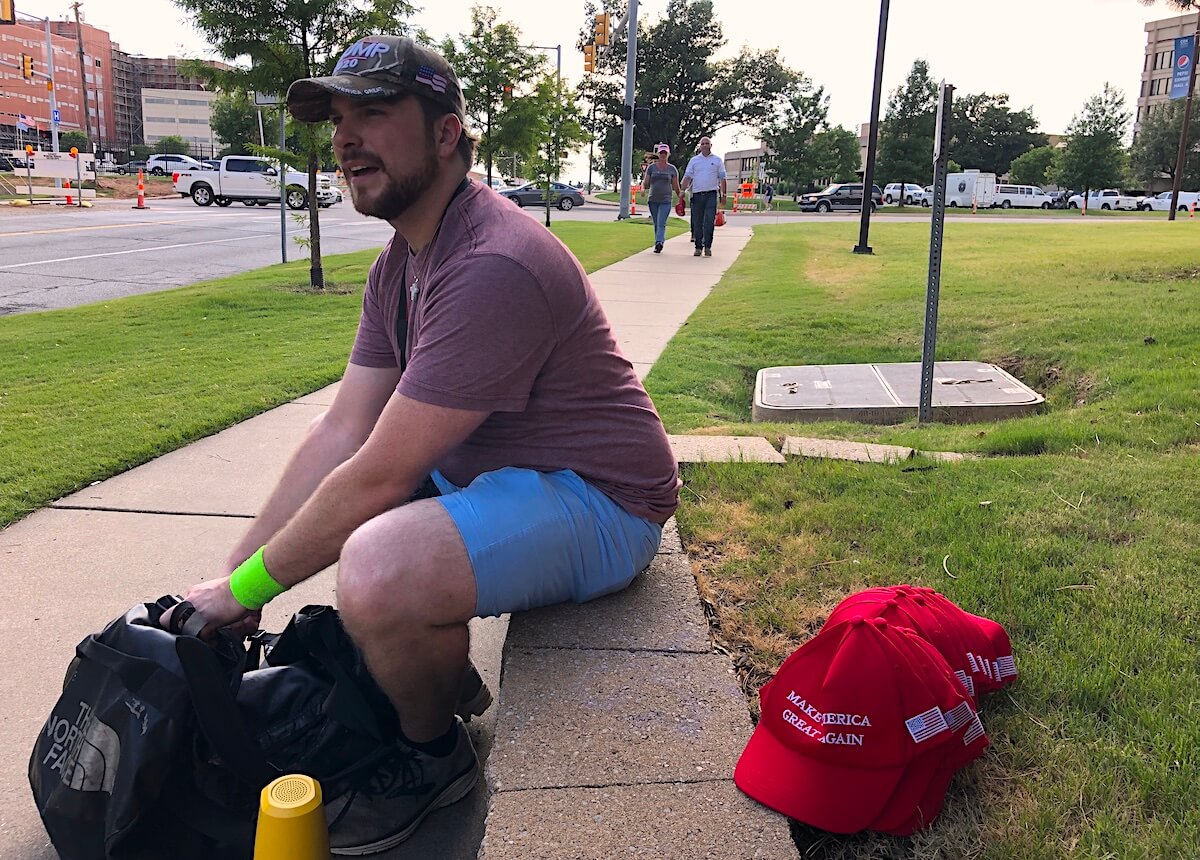
Trying to figure out what to believe politically has been an interesting experience for Ian McMath. The 27-year-old Little Rock, Arkansas, resident was selling “Make America Great Again” Trump hats Saturday thanks to a commission arrangement he had discovered on Craigslist. His goal was to cover gas money for his weekend junket to see “DJT the man” for the first time.
“I’m pretty excited,” McMath said. “I’ve sold quite a few, so hopefully I can get at least $100 on it.”
McMath plans to vote for Trump in November, a stark change from his 2016 feelings when he was in Beijing, China, making films.
“Originally, I did not like Trump at all. I was a Bernie supporter in 2016,” McMath said. “I made some videos for the Bernie Sanders campaign for free. I gave him $5. I was fresh out of college at that time. I became disillusioned with being a Democrat in the Democratic Party. But I’d voted for Obama.”
McMath’s exact shift from anti-Trump to pro-Trump is complicated, and it involves his interpretation of the Mueller report at a time when he had written a comedic short about allegations that Trump and Russia were colluding during the election. But it also deals with Trump’s approach to China, a nation whose culture and history McMath has studied since high school. He speaks Mandarin and said most Americans lack an accurate frame of reference for understanding the world’s most populated nation.
“The Community Party, a lot of Americans don’t understand, is nothing like how our politics work. To put it mildly, it runs like a mafia. It’s not an accountable organization. So there are a lot of dynamics where we were getting the wool pulled over our eyes,” McMath said. “I think we need to treat them as an adversary and not as a third-world country that we are trying to build up any longer. And that, actually, is how you get respect. In Chinese culture, they respect you when you are tough. They are actually very tough negotiators, and I think the U.S. a little bit had the rose-colored goggles on.”
McMath said he does not blame past presidents like George W. Bush or Bill Clinton for their foreign policy decisions with China, but he does like what he has seen from Trump on that front.
“We let our guard down, and I think that Trump is doing us a service by asserting the United States’ interests and recouping some of those losses we have had,” McMath said.
He said he attended Saturday’s rally to meet other people who appreciate Trump’s efforts and “are part of this new patriot movement,” even though he has not always been fond of Trump’s sometimes vulgar and “unpresidential” language. (Saturday evening, Trump used the phrase “dumb son of a bitch” during his speech.)
“There is something happening that is novel, that is fresh and that represents something that Americans definitely wanted. So I look past the obscenities now,” McMath said. “Almost all of my friends who are my age, they are all very hostile to my views. So I came here also just to mingle and understand why are we villainized.”
When it comes to Trump’s distrust of media, McMath offered his own analysis of the industry’s issues.
“I feel like the media could be more ideologically diverse. I feel like a lot of these newsrooms may have gone for these other ideas of diversity, which are based off of skin color or socio-economic background or whatever, but not ideology. So they’ve forgotten to be ideologically diverse,” McMath said. “I think it’s not possible to be objective. We can try our best to be objective, but we always have our own biases.”
I said that’s why my personal coverage of presidential campaign rallies is written in first-person and labeled as commentary. We traded cards and went our separate ways.
‘Instruments of restoration, healing and peace’
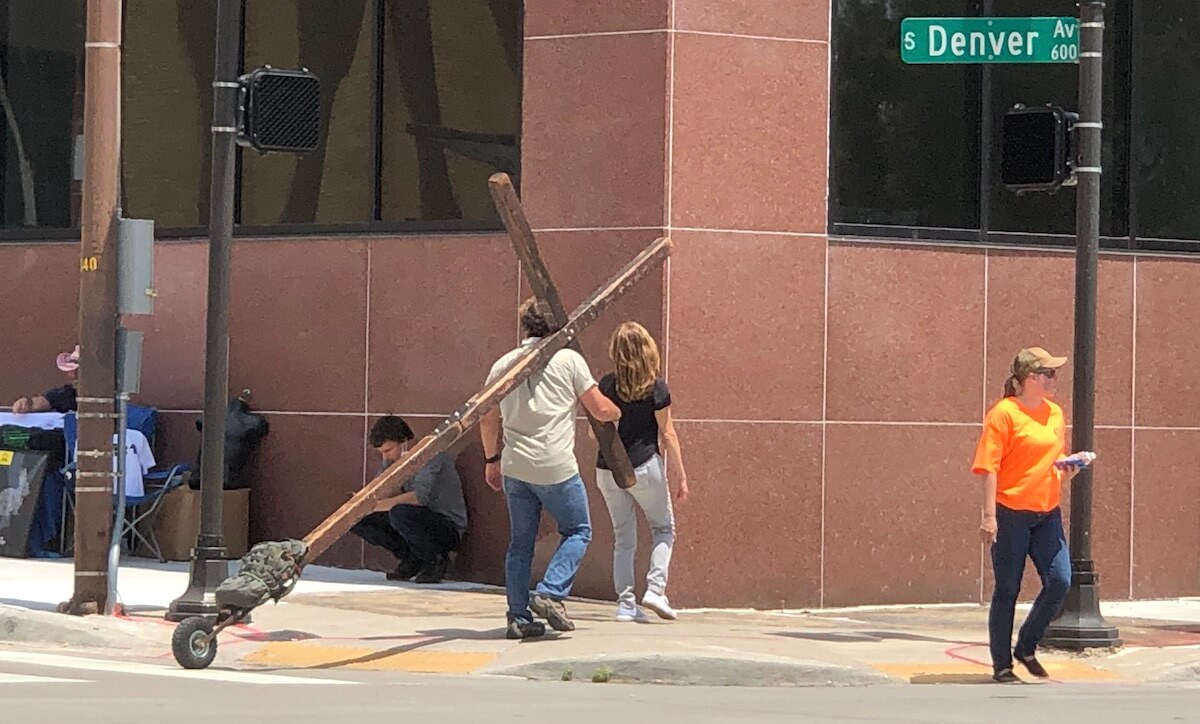
Compared to what many expected and what I feared, the rest of Saturday’s Trump rally in Tulsa went pretty smoothly. A couple of brief clashes between Trump supporters and Trump protesters seemed to avoid major injury, and aside from making a couple of high-profile arrests, Tulsa law enforcement avoided much scrutiny.
“I really was anticipating that there would be some civil unrest,” Rep. Scott Fetgatter (R-Okmulgee) told me. “I’ve been all over downtown this afternoon just trying to get to this place. It’s been very civil, very calm. The crowds haven’t been overbearing in any way. And so I’m very happy to see what I’ve been seeing today.”
Eating a banana slushie as the sun beat down upon us, Fetgatter said he appreciated the peacefulness of the weekend’s events, which started with Friday being Juneteenth, a day that commemorates the end of slavery. Trump’s rally had originally been scheduled for that day, but thankfully it was rescheduled.
“With Juneteenth celebrations going on, the president of the United States coming to our city and our state, it’s all good,” Fetgatter said. “We just need to learn to stop arguing and fighting about stuff and start having conversations and start having respect for one another so that we can continue to move our country forward no matter who is doing what.”
Fetgatter’s hope reminded me of the words I’d heard moments earlier from Keith Wheeler, a Tulsa man who has walked around Oklahoma and across the globe carrying a 12-foot wooden cross.
I had recognized Wheeler and his cross from the internet, so I ran to catch him as he crossed a street heading away from Saturday’s rally. In our conversation, he eschewed politics but spoke of the message he has carried more than 20,000 miles over the past 25 years.
“The message of the cross is the very best of God meets the worst of mankind. We’re in an age when the worst of mankind seems to be on full-blown display, and so I carry the cross in the midst of these times, and in the midst of these places,” Wheeler said. “First of all, I can’t be overseas right now because of the virus, because of the shut down. But God has brought the world to our front door with everything that’s going on.”
Wheeler told me he does vote, but that’s as close as he came to offering an opinion on the 2020 election.
“I am a voter. I don’t belong to a particular party. The Bible reminds us to pray for our leaders. To love our leaders. The Bible also tells us to be careful what we say about the king even in our bed because a little bird might go out and whisper it to someone else,” Wheeler said. “So that means whoever my president is, it doesn’t matter. I’m supposed to pray for him. I’m supposed to love him and I’m supposed to speak well of him. I don’t have the right to undermine him.”
When I ended my interview with Wheeler, he asked if he could pray over Archie and me. He asked God to support journalists and “make them instruments of restoration, healing and peace.”
Considering the last three months, I appreciated Wheeler’s prayer for my profession more than he probably knew.









